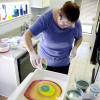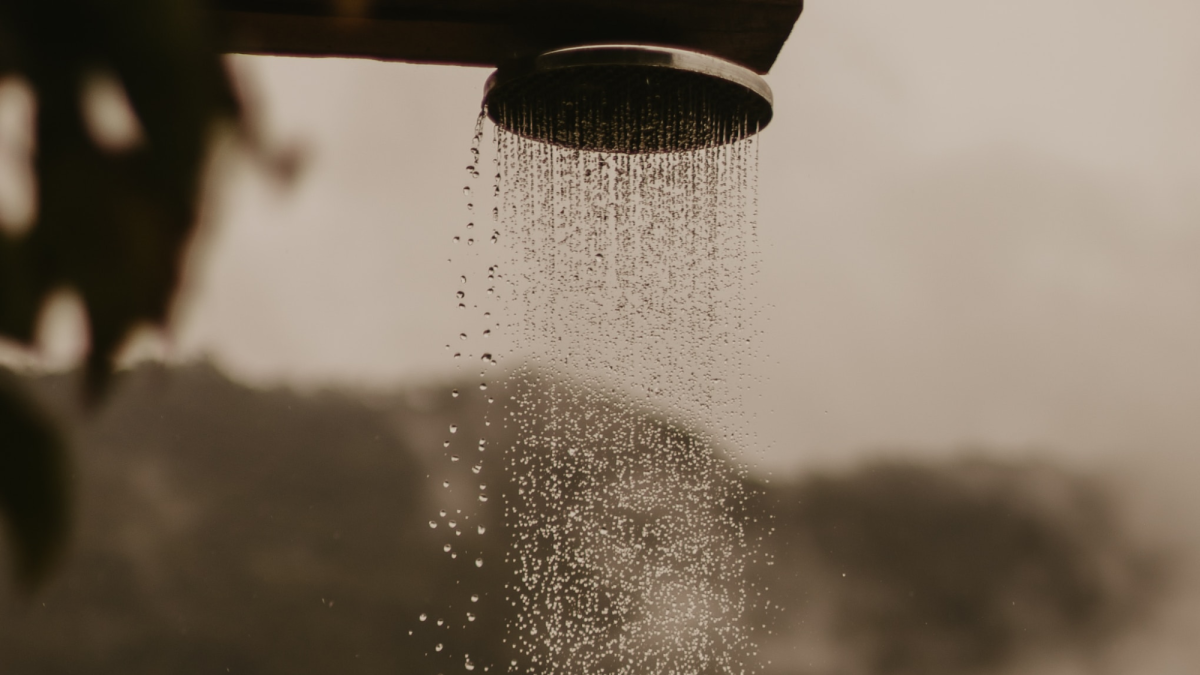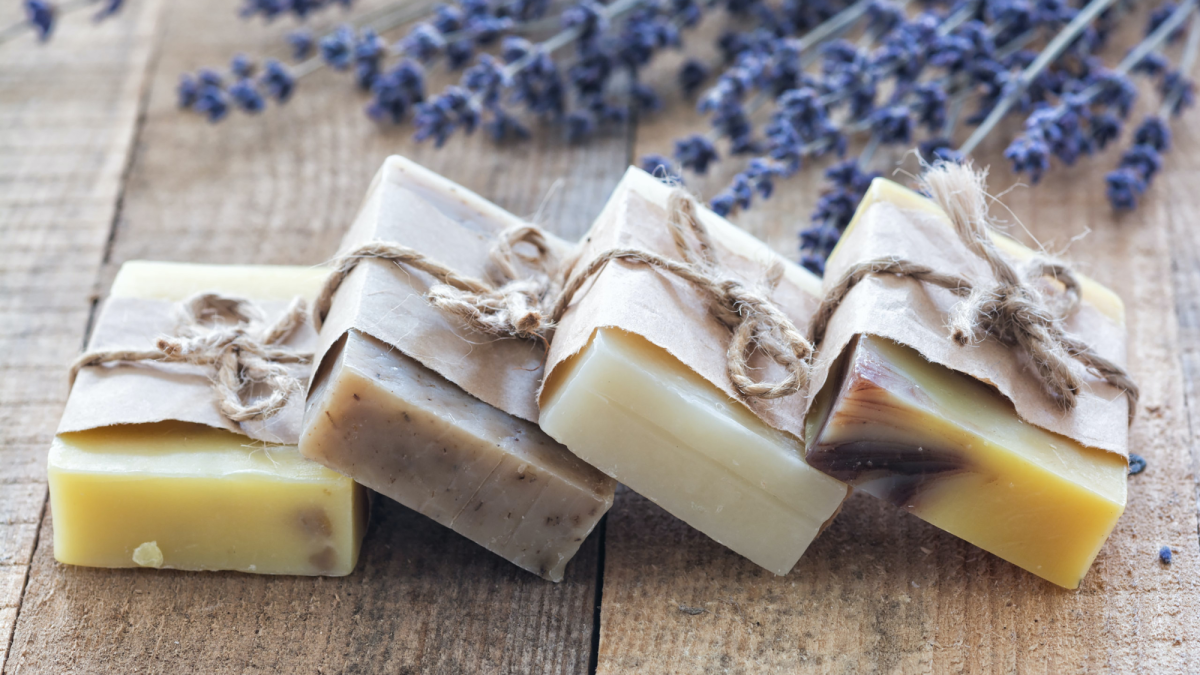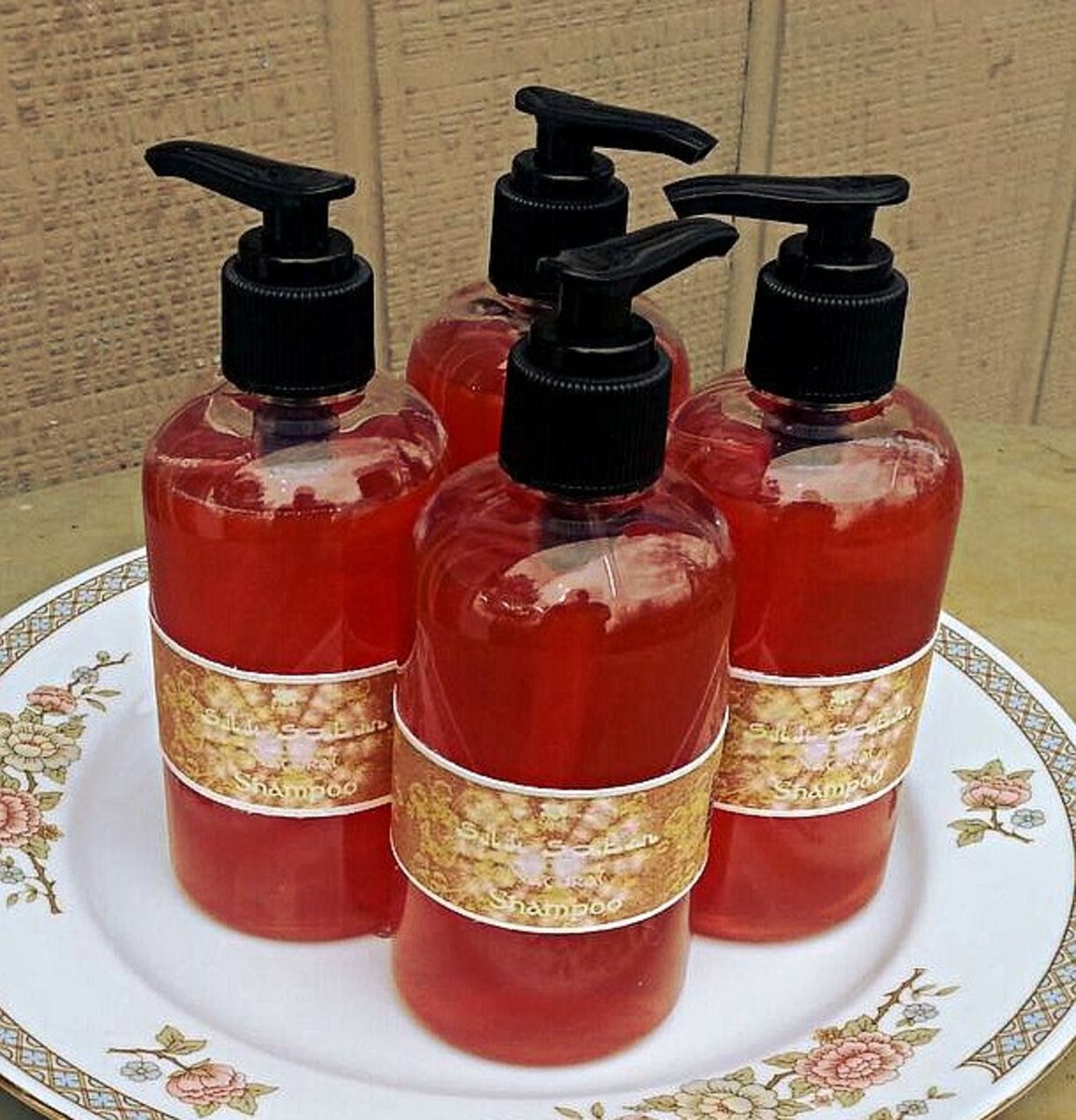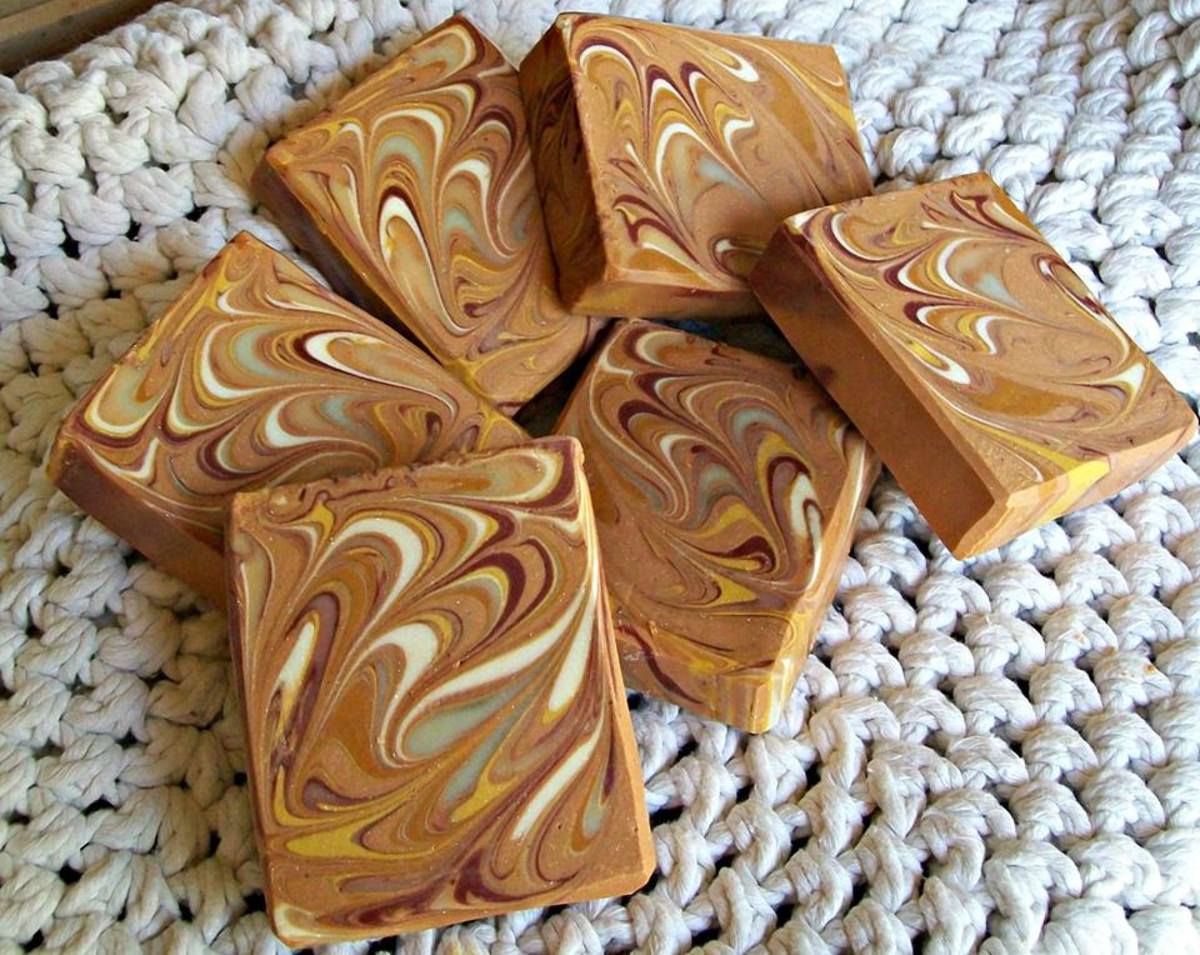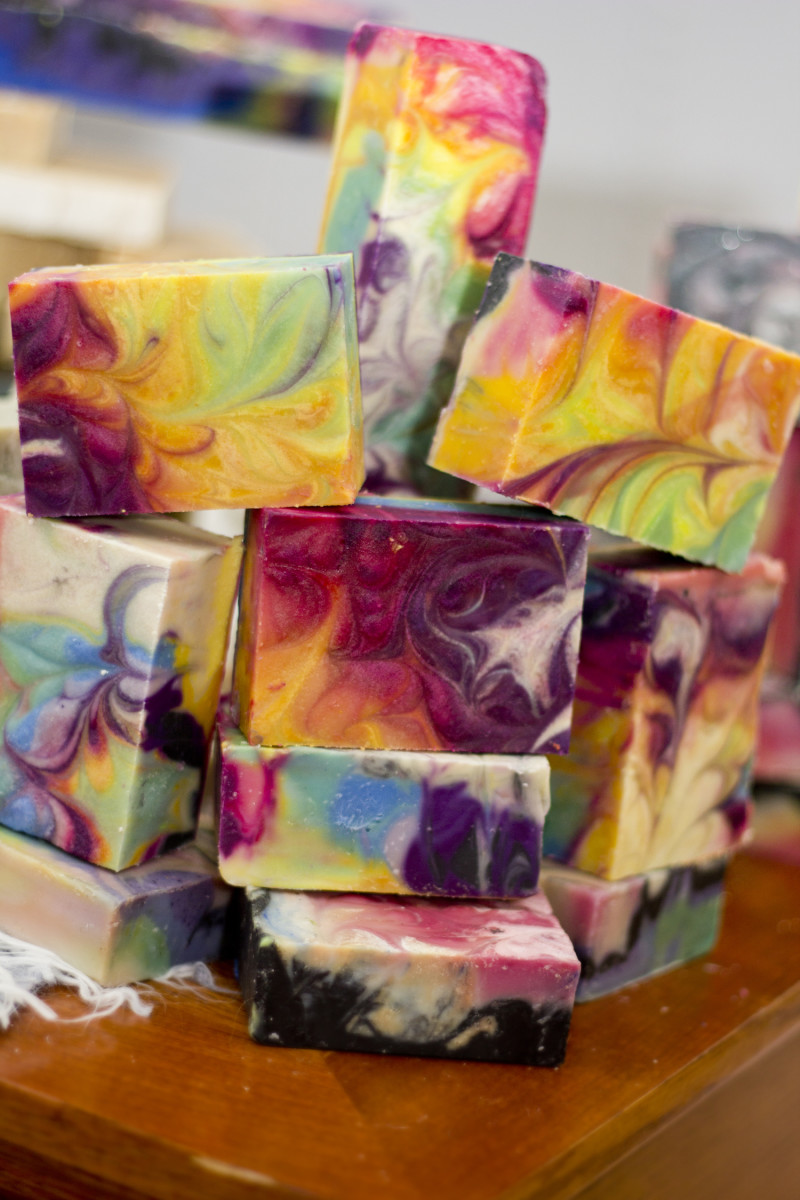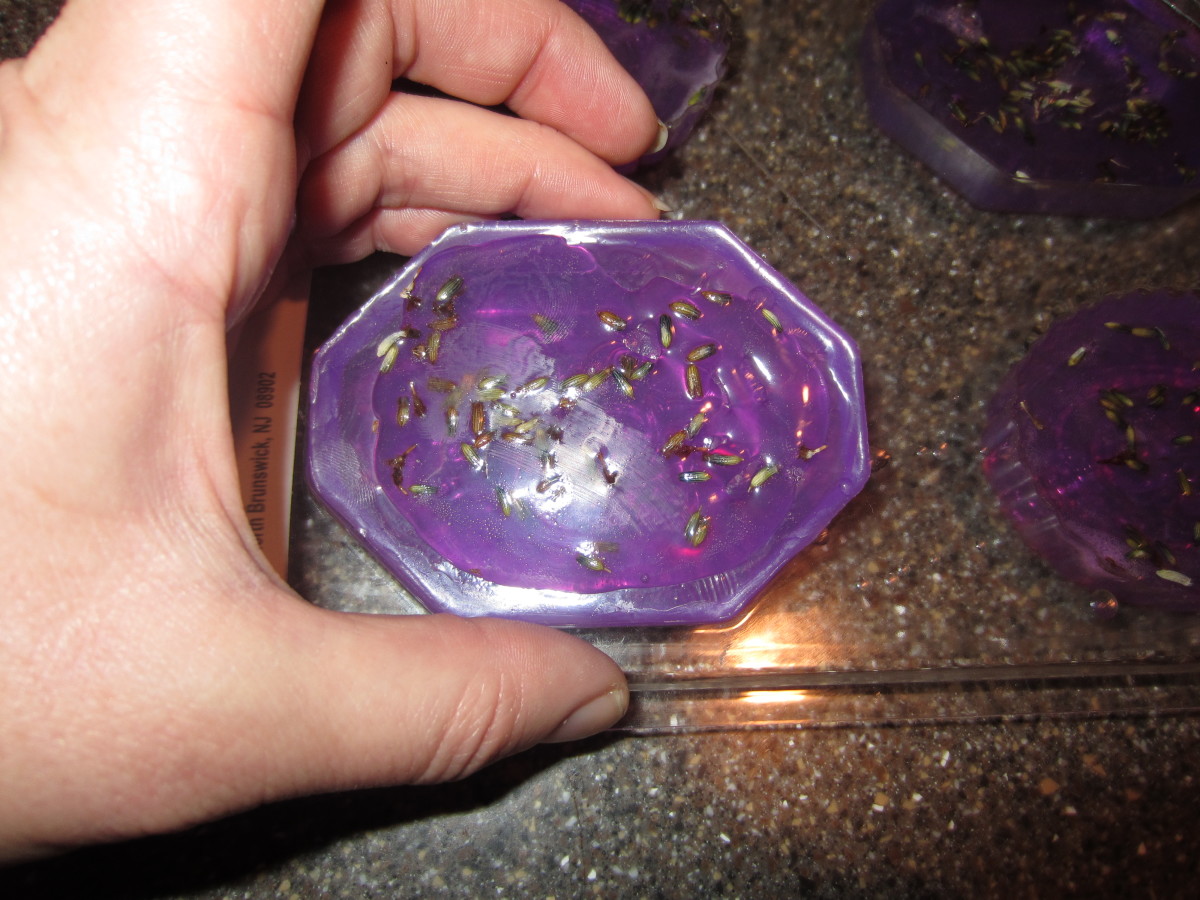Frequently asked questions about handmade soap
FAQs about handmade soap
In my work making and selling handmade bath and body products, I meet a lot of people. Some are handmade soap aficionados, others are trying it for the first time. Surprisingly, they ask a lot of the same questions. I've even had one teen ask me how to use bar soap since she'd only ever encountered shower gel!
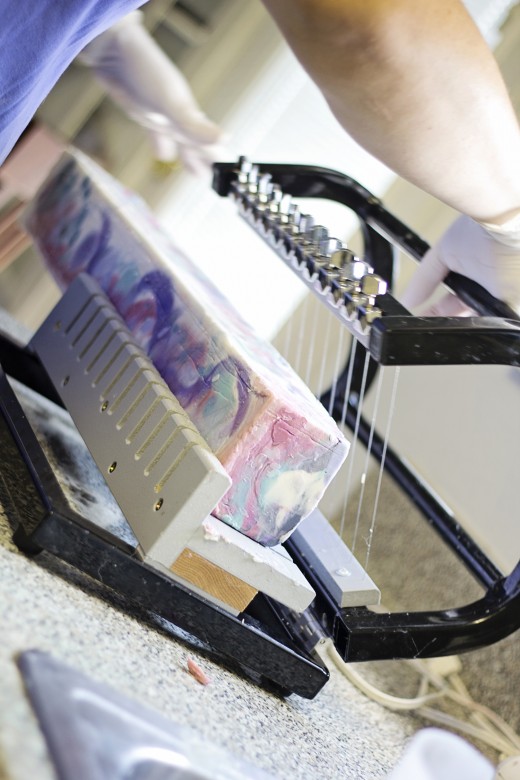
How is soap made?
The basic answer:
Soap is made by combining fats, oils, water and lye, and any scents and colors you want to use. You pour it into a mold, let it set and then cut it. Voila, soap!
The much more detailed answer:
The ingredients become a kind of salt through saponification as the lye breaks down the fats/oils. For example, lard becomes sodium lard ate through saponification. If you just want to play, there are all kinds of craft store-y things that you can melt in a microwave and mold, thus "making" soap. But the real stuff needs that strong alkali (sodium hydroxide or potassium hydroxide) if you actually want to create soap. There's a balance that you have to make in your recipe to make sure there is no lye left in the final product; it all gets used up in saponification.
For even more details and how to make your own soap, there's a recipe and instructions here.
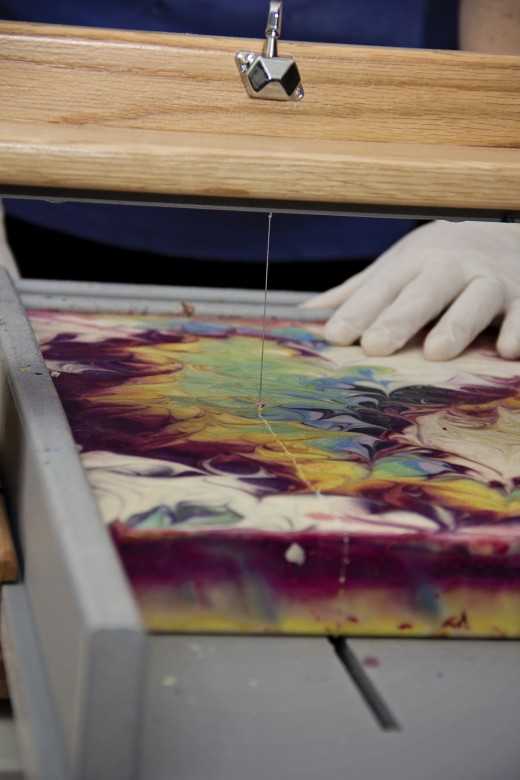
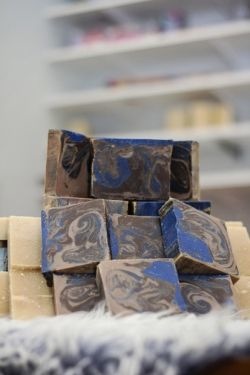
How is handmade soap different than grocery store soap?
The cleansing bars found in the grocery store are in fact, not really soap for the most part. Rather, they are a conglomeration of synthetic detergents designed to act like soap, i.e. to help water lift dirt from your skin and flush it away. They also contain a lot of other ingredients, such as chemicals designed to keep your bathtub cleaner by softening your water. Take Dove, for example. It’s part soap and part synthetic detergent. It contains ingredients to clean your skin, but it also contains a lot of chemicals specifically designed to make sure dirt washes directly down your drain.
Synthetic detergents are usually much harsher than a true soap, which is made with natural oils and fats, such as olive oil, shea butter, cocoa butter and coconut oil. While it is possible for a poorly-made bar of handmade soap to be drying or irritating to your skin, if the recipe is well balanced then it will be a gentle and luxurious experience to use it.

What about lye? Doesn't it burn your skin?
The simple definition of soap is fat/oil+water+alkali (lye)=saponification, or the chemical process that produces soap. If there’s no lye, it’s not soap. When the saponification process is complete, we are left with the ingredients transformed into soap and glycerin (and depending on how the recipe goes, some leftover skin-loving oils). With a well-balanced recipe, when soap is made correctly, there is NO LYE remaining in the final product. It’s all been used up in the process of converting the fats/oils to soap.
What about the 100% glycerin soaps that I see in the stores?
Sorry to tell you this, but there is no such thing as 100% glycerine-only soap. Think about it; glycerine is a liquid. If you just took glycerine and combined it with lye, you’d get…a yucky mess that would likely burn or hurt you. Read the labels of what you're buying. The manufacturer may have added an amount of 100% glycerine as an additive to their cleansing bar, but there’s no way to know just how much (unless you’re into corporate espionage and can hack their computer system).
Frequently, commercial companies who make cleansing bars will remove any glycerine from the bars that is made in the process and either use it in other products they make or sell it to other companies for use in a variety of cosmetics. Handmade soap retains the natural glycerine that occurs during the saponification process. It’s roughly 10% depending on the recipe. Glycerine contributes to handmade soap’s gentleness and helps attract moisture from the air to your skin.
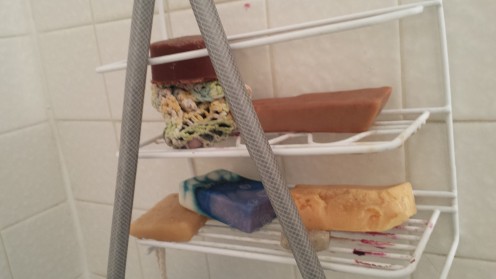
How should I take care of my handmade soap to make it last?
Handmade soap is a little different than the synthetic detergent bars you may be used to. Since it retains the naturally-occurring glycerine, it’s susceptible to moisture. Make sure you allow your handmade soap to drain between uses. If you leave it sitting in a puddle, you’ll probably end up with a mushy mess. We mostly use our bar soap in the shower, and have a wire rack hanging off the shower head where we keep it. This means our soap is handy for showers and drains well when not in use.
Why is it more expensive?
When you are buying handmade soap, you are buying the years of expertise and testing that soap maker (or soapiste, as I like to call myself) has put into developing, testing and refining their recipe. It's very important that the soap maker has a very good understanding of the saponification process and has a recipe that is balanced between cleaning ability and gentleness to the skin.
Keep in mind that many soap makers are one-person shows. The soap recipe has to be created, tested, retested, tweaked and finalized over many batches. Supplies and equipment have to be bought. Once the soap is made, it has to sit to release excess moisture, or cure, for weeks before it's ready for sale. It has to be labeled, marketed, shipped and transported. If you're buying it in person, you're likely at a farmer's or crafts market, directly from the person who made it. This is a great opportunity for you as a consumer to connect with the actual person who made the product you are purchasing. How often does that happen? Most soap makers (if they're not very busy) are delighted to tell you about their products and can talk your ear off about what's in them and how they're made. But did you know they had to pay to set up their tent and tables at that market or show?
Making and selling your own anything is extremely labor-intensive, and we haven't even touched on the online work that goes into it.
When you're buying good handmade soap from the maker, you're getting something absolutely unique. Not only is it beautiful, it's also useful. Please consider all of this next time you think that $5 bar of soap is too expensive. Most likely, at that price, the maker is selling their soap too cheaply.
